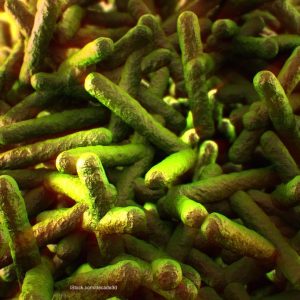There have been several recalls for products for Listeria monocytogenes contamination in the past several weeks, including several derivative recalls for smoked salmon. Products were recalled from Sam’s Club, Giant’s, Martin’s, Whole Foods, King Sooper’s, City Market, and Ralph’s. Smoked salmon is often contaminated with Listeria bacteria because the bacteria is present in many water bodies. Then, improper brining, draining, smoking temperatures, cooling, packaging, and handling of the product can contaminate the salmon.
 In addition, last year there was a multi state Listeria outbreak that caused illness and death that was linked to soft cheeses. Protecting your family from listeriosis can be difficult.
In addition, last year there was a multi state Listeria outbreak that caused illness and death that was linked to soft cheeses. Protecting your family from listeriosis can be difficult.
The scientists at Michigan State University Extension have prepared a guide for protecting your kitchen from this bacteria. One of the problems with Listeria monocytogenes is that it can grow at refrigerator temperatures. It does grow more slowly at 40 degrees Fahrenheit or less.
Pay attention to recalls and always check to see if the food you are going to eat is safe before you eat it. Wash all fruits and vegetables under running water just before eating. Do this even if you are going to peel the produce, because your knife will move bacteria from the skin surface through the flesh of the fruit or vegetable. Avoid cross-contamination by keeping foods eaten raw or uncooked away from foods that must be cooked, such as meat and eggs. And make sure your refrigerator is set to just below 40 degrees F. Clean your fridge regularly and discard foods that are older and past their use by date. Use paper towels and soap to clean the shelves to avoid transferring germs on cloth. Wash your hands frequently when preparing and serving food.
And if any member of your family is in a high risk group: pregnant women, the elderly, small children, those with compromised immune systems, think about avoiding these foods: smoked salon and deli meats, hot dogs, raw seafood, canned seafood, unpasteurized cheese and milk, vegetables grown in contaminated soil, pate, soft cheeses, and ready to eat foods. If you heat the foods you purchase to safe temperatures, bacteria are automatically destroyed. Foods that are refrigerated for long periods of time, such as soft and semi-soft cheeses, can also contain Listeria.
If you or any member of your family is exhibiting symptoms of listeriosis, see a doctor immediately. Those symptoms include flu like fever, muscle aches, upset stomach, diarrhea, stiff neck, headache, loss of balance, and confusion. Pregnant women may have only very mild symptoms, but listeriosis can cause miscarriage and stillbirth.




